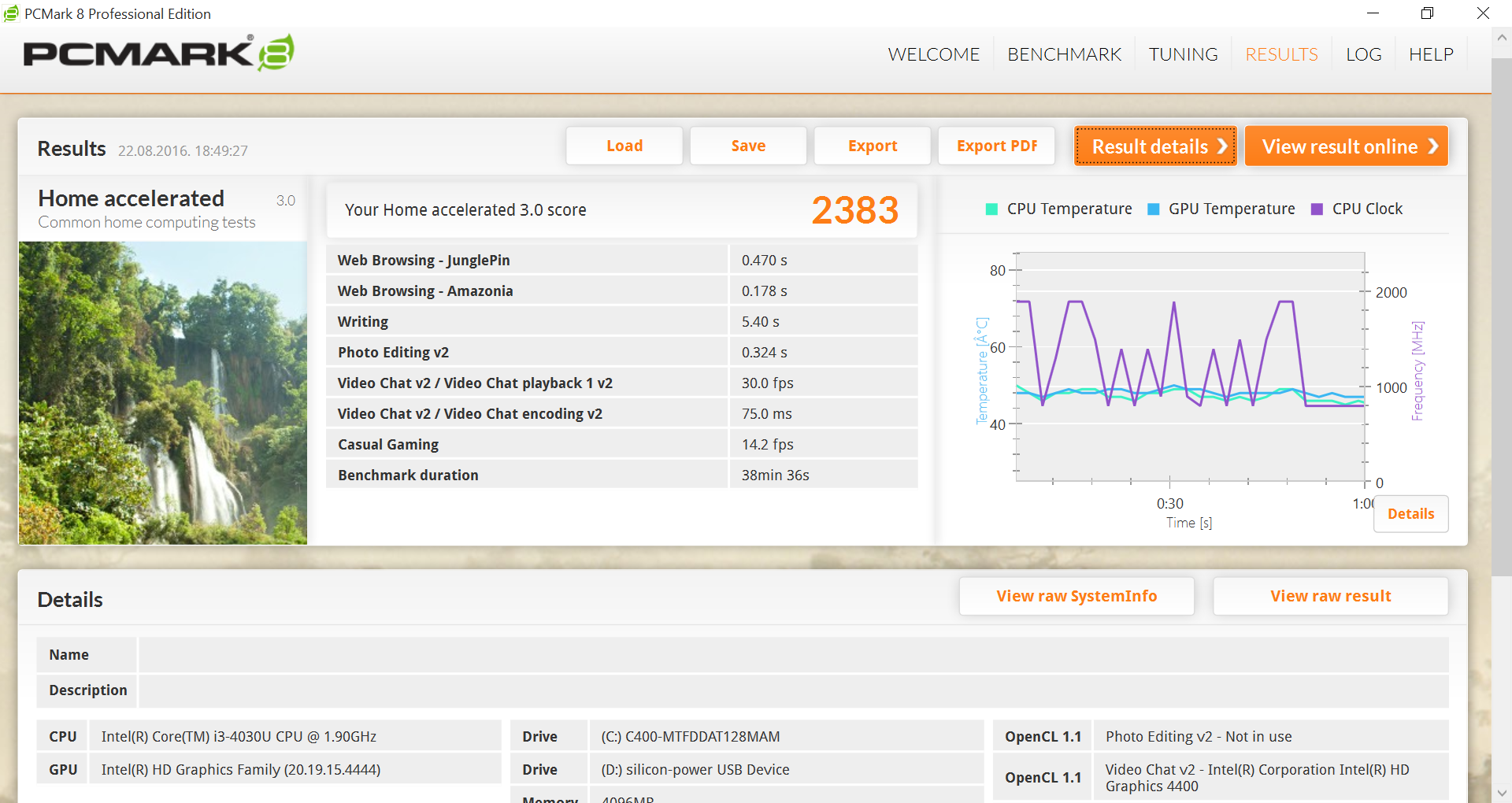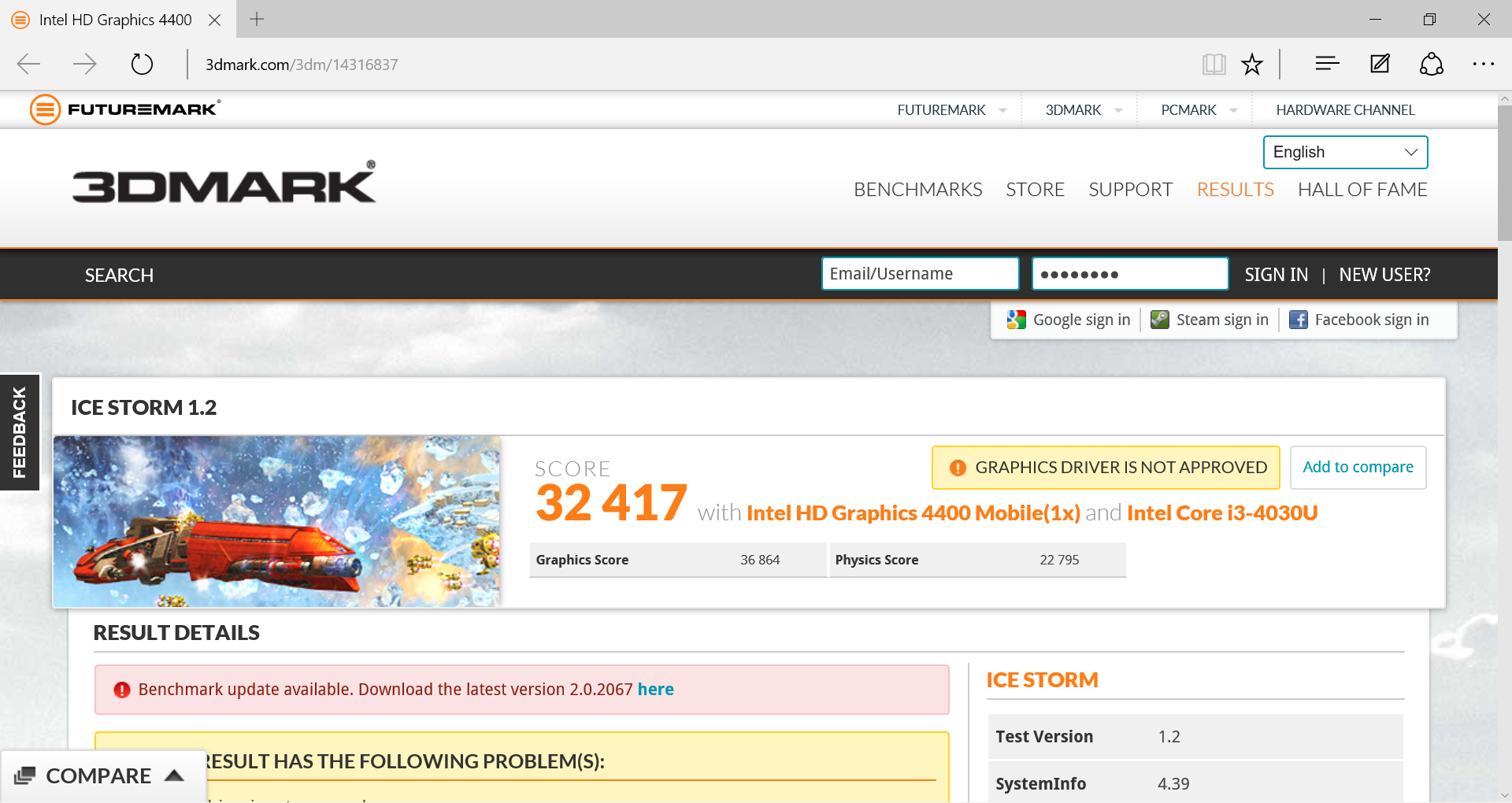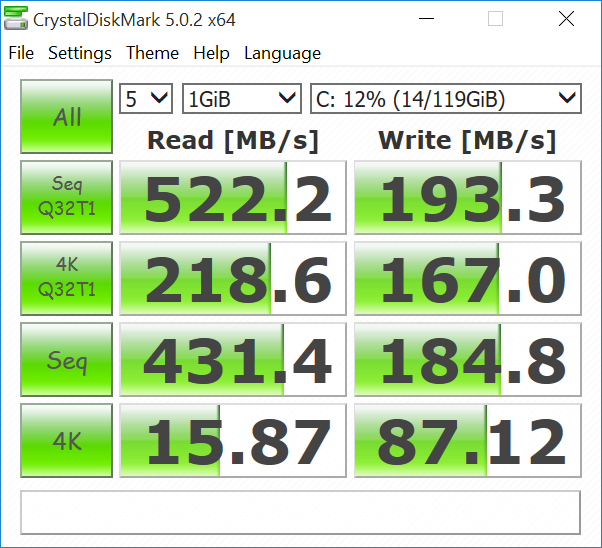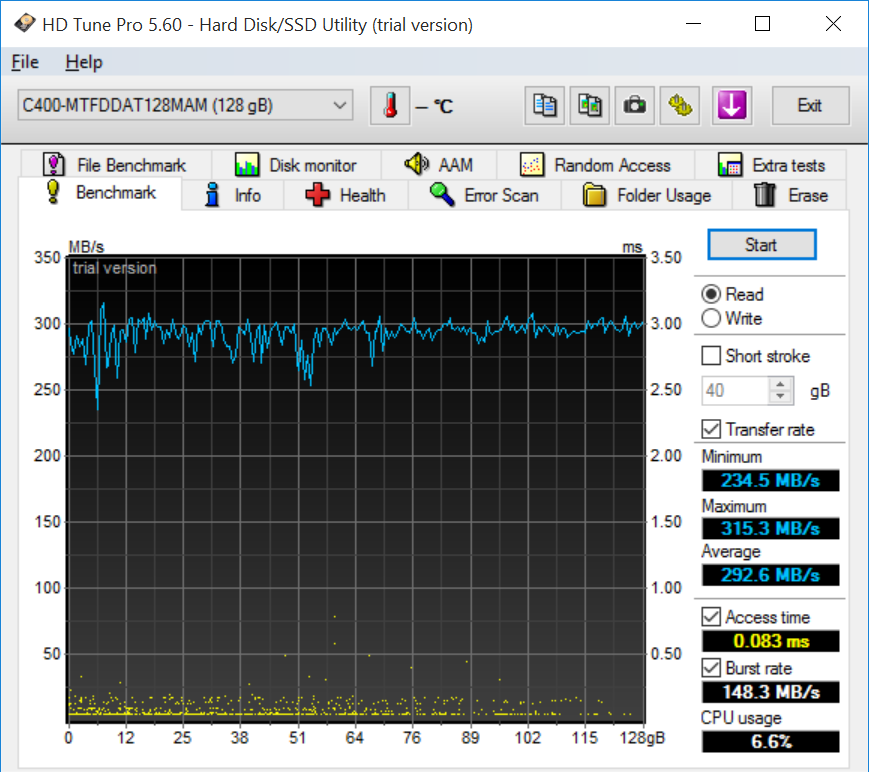Index
Performance and benchmarks
The Martian A8 notebook ships without an operating system, so our first step was to install Windows 10. The installation completed without a glitch, and it gave as the first hint to the performance of this notebook – the Martian A8 flew through the installation process. Windows 10 recognized all of the hardware components and installed the necessary drivers automatically, so no problems there.
The Martian A8 is based on a Haswell i3-4030U 22nm CPU maxing out at 1.9GHz, introduced in Q2 2014. You could argue that this is an old chip, and that Martian should have used an i3-5xxx or i3-6xxx, but in a budget 13.3” notebook, this CPU hits the sweet spot between performance and price, and still packs a decent punch. The Haswell i3-4030U CPU is definitely drawing closer to its announced EOL date (January 2017), but it can still be found in many 15.6” notebooks currently on sale.
The first benchmark we ran was the PCMark 8 Home accelerated, and the Martian A8 completed it 38 minutes and 36 seconds, and returned a decent score of 2383.
We monitored the thermals during the PCMark 8 benchmark, and the CPU temperature did not exceed 62 C, with the CPU cooler remaining pleasantly quiet at all times.
In 3Dmark Ice storm the Martian A8 managed to score 32417 without any driver or compatibility issues.
The main culprit for the smooth system performance besides the CPU, is the SSD drive. Running the Crystal Disk Mark revealed very nice performance levels of the Micron 128GB SSD.
HD Tune also confirmed these nice scores.








